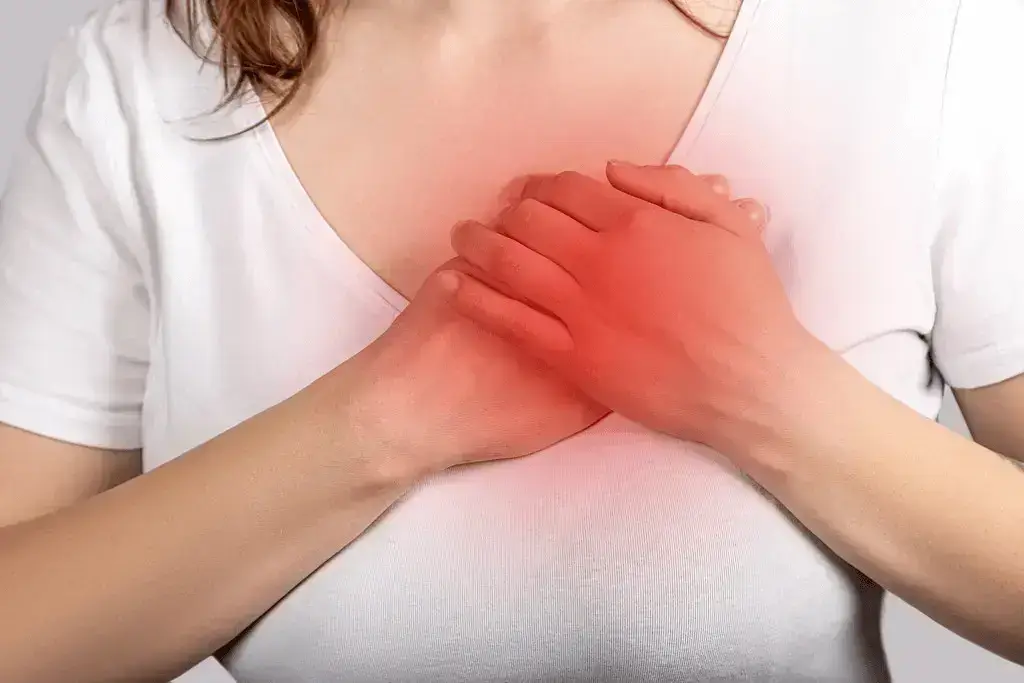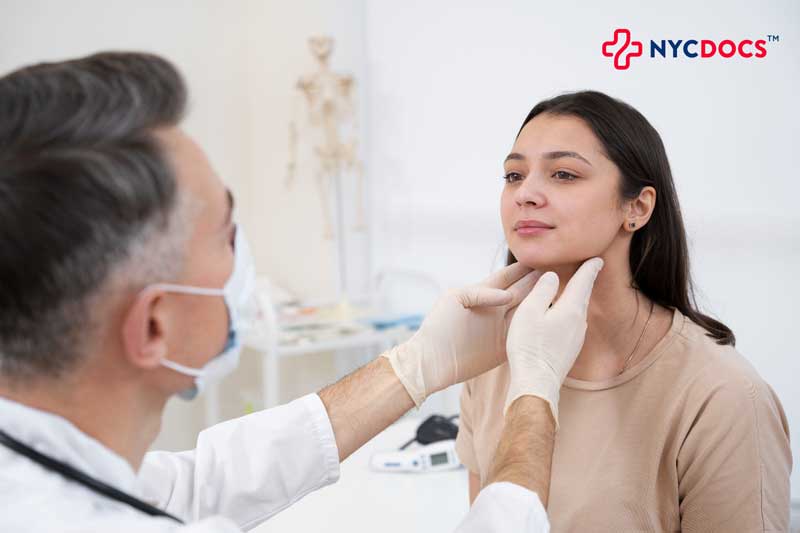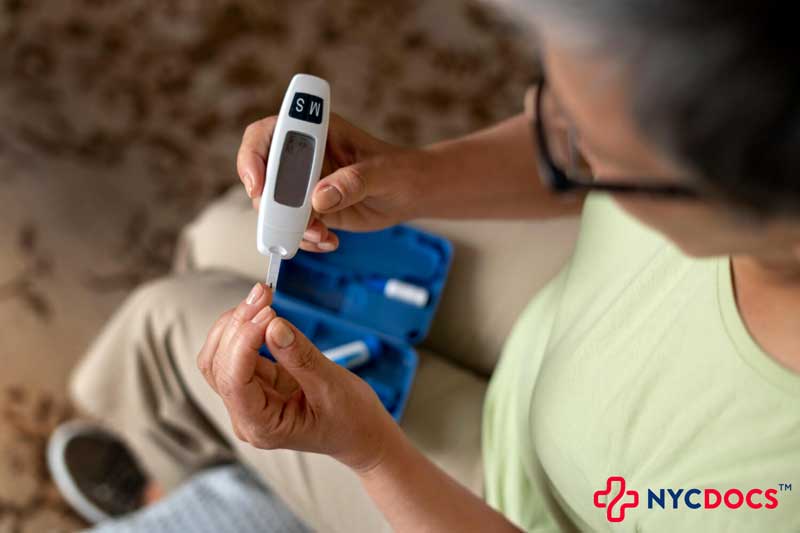The very first question that might arise in your mind is, "What is Pots disease?"

The term "POTS" stands for Postural Orthostatic Tachycardia Syndrome which clearly indicates that it is something about upright movement. Orthostatic tachycardia syndrome pots are mostly common in women.
They can develop this in their teenage or young age between 20 to 30. Sudden movement after lying or sitting down for an extended time, the upper part of your body makes your blood pressure fall and your heart rate irregularly faster. It makes you lethargic, dizzy, lightheaded and can make you pass out, and it can sometimes result in faintness.
Pots heart disease is an autoimmune or immunological nervous disorder that can be triggered by many factors like lifestyle, diet, heredity, age, gender, sleep, and many more. According to the statement of the National Library of Medicine of America, 1 to 3 million people in the USA developed pots heart disorder.
Some many factors or reasons are responsible for Pots disease.
Covid-19!
It is not clear that COVID-19 has affected this autonomic dysfunction called pots disease. Corona was a viral infection, and its symptoms were similar to pots disease symptoms. And pots disease sometimes develops due to some viral infections. Some viral infections can affect the immune system of the body, which can develop any autonomic disease like postural autonomic tachycardia syndrome.
Blood count and blood flow
Some people don't have enough blood count, and their blood doesn't flow properly inside the whole body. As a result, they experience a lack of efficient blood circulation in the upper part of the body when they suddenly stand up.
Heredity or genetics plays a role.
People may experience medical conditions pots because of their family history. Pots disease depends on many factors; among them genetics plays a big role. Blood group, height, weight, and metabolism affect our immune system. As pots is an autoimmune disease, it can develop due to genetics.
Hot weather
Pots disease is especially triggered in hot environments. In summer, when the body gets very dehydrated and sweats a lot, pots disease becomes more prominent. The symptoms get worse due to the weather.
Lack of movements
Lack of movement can worsen pots tachycardia syndrome. Regular physical exercise increases the exercise of the heart and regulates the blood flow into the heart. It also gives the heart rate a healthy rhythm. So if you don't keep moving your pots, heart disease can be worse. Sometimes, people have to stay in bed rest for other physical traumas, as a result, staying in bed for a long period can develop such autonomic disease. Excessive exercise before the symptoms are managed can be very dangerous for orthostatic syndrome of the heart.
Dehydration
Water helps to increase oxygen in our brain so that our brain becomes more static. It may prevent us from being faint or feeling drowsy. If you feel that you experience the symptoms of pots disease, you should talk to your primary health physician to diagnose your medical condition pots.
Alcoholism
Excessive intake of alcohol can affect the symptoms of this orthostatic syndrome. Alcohol has an impact on blood pressure, cardiovascular system, and pulse count. It also causes a water deficiency in the body, which changes the fluid balance in the body. Though these symptoms are very personalized, people with postural orthotachycardia syndrome may experience them more. So, if you suspect that you have pots autoimmune disease, don't waste time and see a healthcare professional right away.
Nicotine
There is an established statement, "Smoking is injurious to health." Smoking affects the whole body negatively. We know nicotine damages the blood vessels and impacts the flow of oxygen into the brain cells. It might worsen the symptoms of pots neurological disorder. Nicotine also affects cardiac health. As the heart is the main sufferer of this pots neurological disorder, quitting smoking is the best idea for overall well-being.
Caffeine intake
Caffeine is a substance that directly stimulates the central nerves. Intake of caffeine increases blood pressure and pulse rate. People feel the symptoms of pots disease and may experience intense discomfort and high heart rate due to caffeine consumption.
Dietary choices
Food choices are different for various people. Unhealthy foods are not a good choice for people with tachycardia syndrome symptoms. Such foods directly affect the sugar level of blood and people with pots disease may feel discomfort. Packaged foods are highly processed foods. People with pots syndrome should avoid refined sugar, white bread, and white rice. Protein, vegetables, whole grains, and fruits are the best choices for people with pots disease. Avoid large meals and eat small meals frequently.
Menstrual Cycle and Pregnancy
Women who are on their monthly menstrual cycle feel different kinds of hormonal changes in their bodies. As a result, those who have pots disease might feel more discomfort. The same goes for women who are pregnant.
Post-surgical period or Medical history
After surgery, some people may experience changes in their immune system. Being an autonomic disease, pots symptoms may develop in the nervous system. The medical history from childhood to adulthood can play a role in developing pots disease.
Psychological issues
Mental illness can trigger pots disease. Mental illnesses like depression and other mental disorders affect the nervous system of the body, and there are chances that it can damage brain cells. As a result, it can cause anxiety, which can cause palpitations and shakiness in the body.
Diagnosis process
There are various diagnosis processes of pots disease. If you suspect that you or your family member or friend has such symptoms, immediately go to your nearest health care center. Taking appointments is very easy. It might be online or a walk-in appointment.
- You will have to go through a lot of tests in the diagnosis process. Your primary doctor or cardiologist will do that to understand your symptoms.
- Continuous standing for a certain period while your blood pressure and pulse will be recorded. It is a 30-minute long test. Your bp and pulse will be monitored continuously during this period.
- TTT is another very common test for any autonomic test. In this test, the patient will be lying on a bed and strapped. The bed will be tilted up to 60 to 80 degrees. During this test, the blood pressure and pulse rate are consciously examined.
- Heart rhythm monitoring is done for around 24 hours. The patient is asked to wear a device for that period and the heart rhythm is monitored.
- A cardiac ultrasound is done to understand and detect any malfunction in the cardiac system.
- Some basic blood tests are done to determine the volume of blood and the level of vitamins in the body, such as vitamins b1, b12, and D. Some hormonal levels are also detected such as thyroid function. Other endocrine systems and the tests of enzyme levels are done as well.
- A sweat test is done to understand the nervous system of the body in a certain condition.
- Imaging or CT scanning of the brain will diagnose any underlying condition of the brain. Sometimes, psychological problems occur due to the malfunction in the brain's nervous system. It might affect the cardiovascular system, which can impact the symptoms of pots disease.
Treatments that can help in pots disease
There is no established proven treatment for pot disease as the actual reason for developing pots symptoms is still unknown. The doctors and researchers argue that it happens due to the immune dysfunctions in the nervous system. The treatment is done in various ways. It may include lifestyle changes, food habits, uses of medications, and many more.
- Drinking a lot of fluids like water, electrolyte drinks, and juice and maintaining proper fluid balance in the body provides comfort in patients with pot disease.
- A balanced diet that has proper nutrition and vitamins is recommended.
- Some exercises may help to regulate the heart function and blood flow around the body.
- Pots disease cannot be cured permanently, yet some medications may help to lower the symptoms of pots disease.
- Beta-blockers can be used to lower heart rate, regulate heart rate, and limit arm and joint trembling. Multiple drugs could potentially be applied to help the body generate more blood.
- So when the patient stands from sitting or lying, the amount of the blood flowing to the upper part will be enough, and it will lower the symptoms of pots disease.
- Anti-inflammatory medicines can be used to reduce the symptoms that happen in the nervous system of the body.
Some medications help to make the blood pressure high and can be used to treat Pots Disease.
- As alcohol, nicotine or caffeine trigger the symptoms of pots some substances help to make the symptoms better. Foods high in vitamins, salted snacks, and electrolytes can make someone feel better who has pots disease.
- Pots disease can show symptoms because of some psychological factors like depression, anxiety, hypertension, past trauma, etc. In such situations, talking to professional counselors or psychiatrists can be helpful. They will help the patient understand their symptoms and suggest proper guidelines for a better lifestyle and thought process.
How to prevent pots disease from developing in the immune system?
The actual reason for pot disease is still unknown so it is tough to say that any preventive measure can help in this. Still, like some non-medicinal treatments, prevention includes some lifestyle practices and regular check-ups of your physical health.
- A healthy lifestyle, for example, eating a balanced diet, can be practiced since childhood. Not eating junk foods, saturated fats, processed and packaged carbs, and junk can be helpful.
- Doing regular exercise is always helpful for any person of any age. Getting engaged in any indoor or outdoor games, joining gyms, or doing your household tasks like cleaning or mopping can be helpful.
- Regular enough sleep at a specific time of day not only keeps you healthy but also your mental health will remain very fresh. A healthy mind stays in a healthy body or a healthy body depends on a healthy mind. They are interdependent.
- Not staying in the same position for a long period is another way to prevent your autonomic dysfunctions. The secret is, to keep moving.
- Staying in a healthy and stress-free mind will keep your mental health in a good state. Depression and anxiety can be symptoms of pots neurological disorders. Or it can be vice versa.
Awareness to prevent tachycardia postural syndrome
There can be multiple ways to raise awareness among people about this pots heart disorder.
- The most effective campaign can be using social media platforms and spreading awareness effectively. Posters, short videos, and story-based short films can be effective.
- Local and national newspapers can print awareness campaigns. This is very effective.
- As awareness should be done from childhood, education materials in school and high school can include awareness so that they can help themselves and take preventive measures.
- Public awareness campaign programs can be arranged in public places like playgrounds, shopping malls, theaters, etc.
- Creating an awareness month or awareness day can be very effective. It attracts the attention of people.
- Collaborating with healthcare providers can be another way to make people aware of pots heart disease. While visiting doctors for other conditions, doctors will educate their patients about pots.
FAQS
Is pots a disease?
Some people might ask, is pots a disease? The answer is YES! And most people are not even familiar with it. It is an autoimmune disease that can be developed in the human body and can make our daily lives measurable.
Is pots an autoimmune disease
There is debate about whether pots are an autoimmune disease or not. But it occurs and affects the nervous system. So it is believed that pots is an autonomic disease and treatments according to that result in minimizing the symptoms.
Can pot disease kill you?
Pots disease will not kill you. If it is diagnosed, managed, and treated properly, people with pots symptoms can expect a normal life span.
Is pots a cardiovascular disease?
Pots syndrome doesn't develop in the heart but in the autonomic nervous system, which results in a high heart rate and lowering blood pressure. As the heart suffers from symptoms of pots disease, the treatment is mostly done by cardiologists. Autonomic specialists also can treat this postural autonomic tachycardia syndrome.
How to test for pots disease?
If you go to cardiologists or autonomic specialists, they will take you through several different types of tests which will determine if you have pots disease or not.
Is pots a rare disease?
Pots are a common condition in people. According to the statement of the National Library of Medicine of America, 1 to 3 million people in the USA developed pots heart disorder.
Is pot disease contagious?
Pots disease happens because of a malfunction in the autonomic nervous system. There is no way it can be contagious.
Can you die from pots disease?
The answer is No. You will not die from pots disease. But if it is not diagnosed or treated timely and properly, it will make you feel worse day by day. Irregular heart rate and fluctuation of blood pressure will always keep you tired. You will be unable to do exercise.
Is pots disease curable?
Pots disease can not be permanently cured but it can be managed with the help of medication, diet, and balanced lifestyles.
Is pots disease dangerous?
If left untreated, pots disease can be dangerous. It affects daily life and heart health. If properly managed and treated, you can lead a normal life like others.
Is pots disease fatal?
No. Pots disease is not fatal. But it can increase the risks of other fatal diseases.
Can diabetes cause pots?
There is a condition called secondary pots. Diabetes can be a reason to develop autonomic diseases like secondary pots.
Can thyroid disease cause pots?
There is no proven evidence that pots disease can be developed due to thyroid. Thyroid problems can cause irregular heartbeat, which can be mistaken as pots disease.










